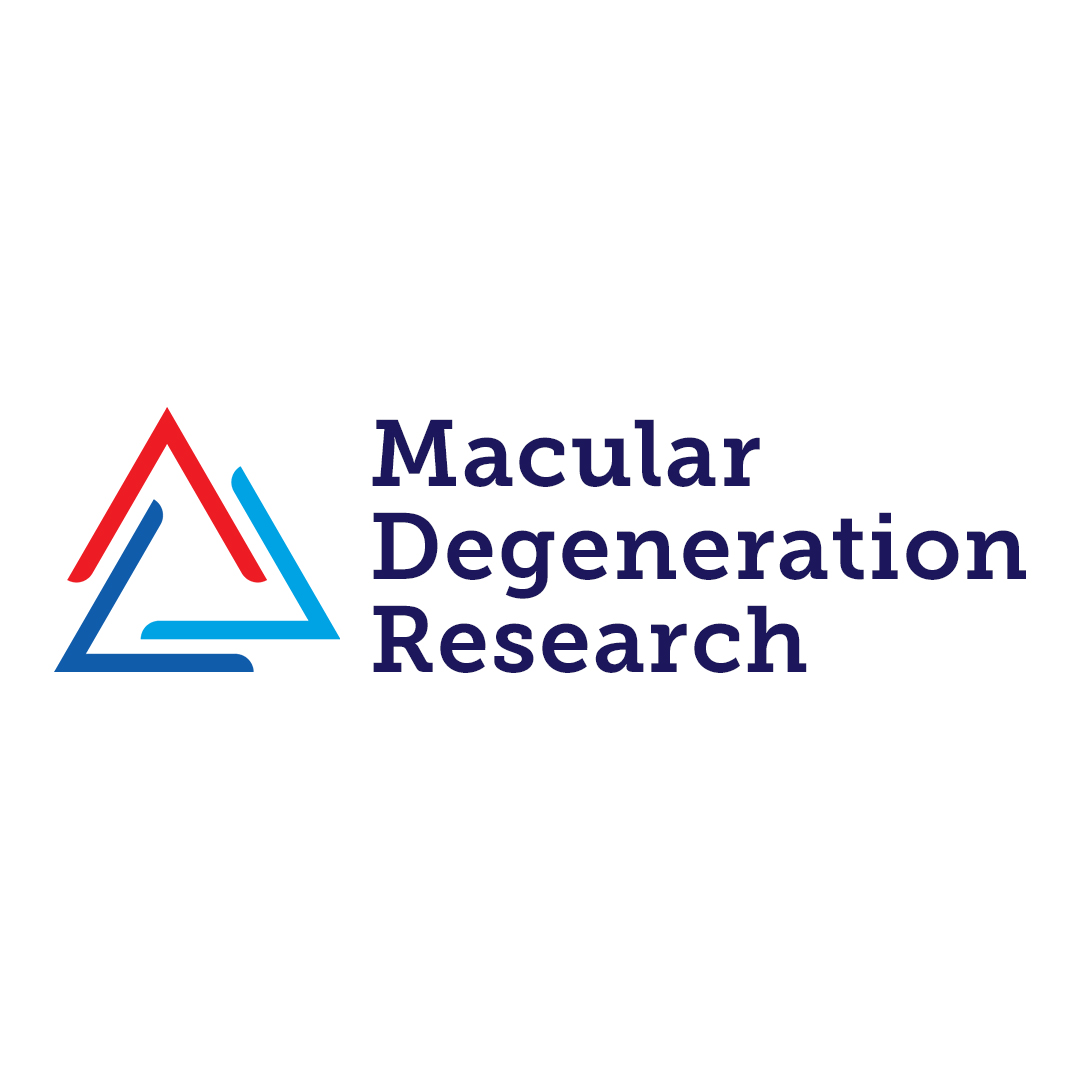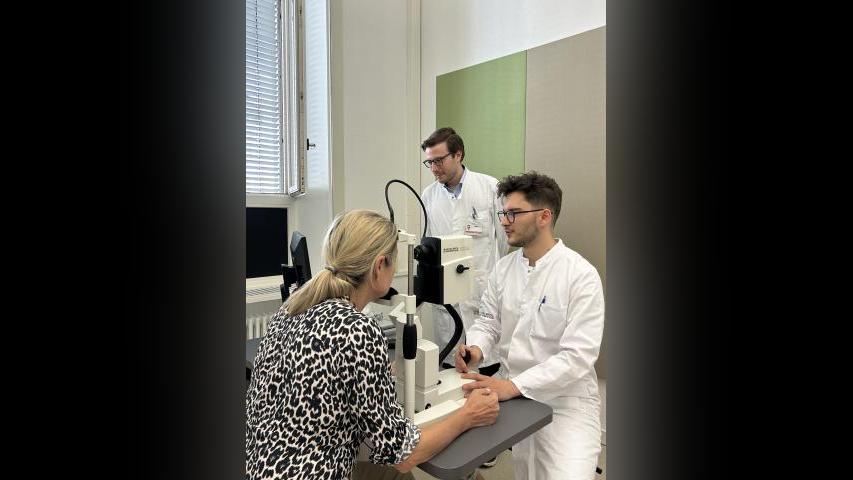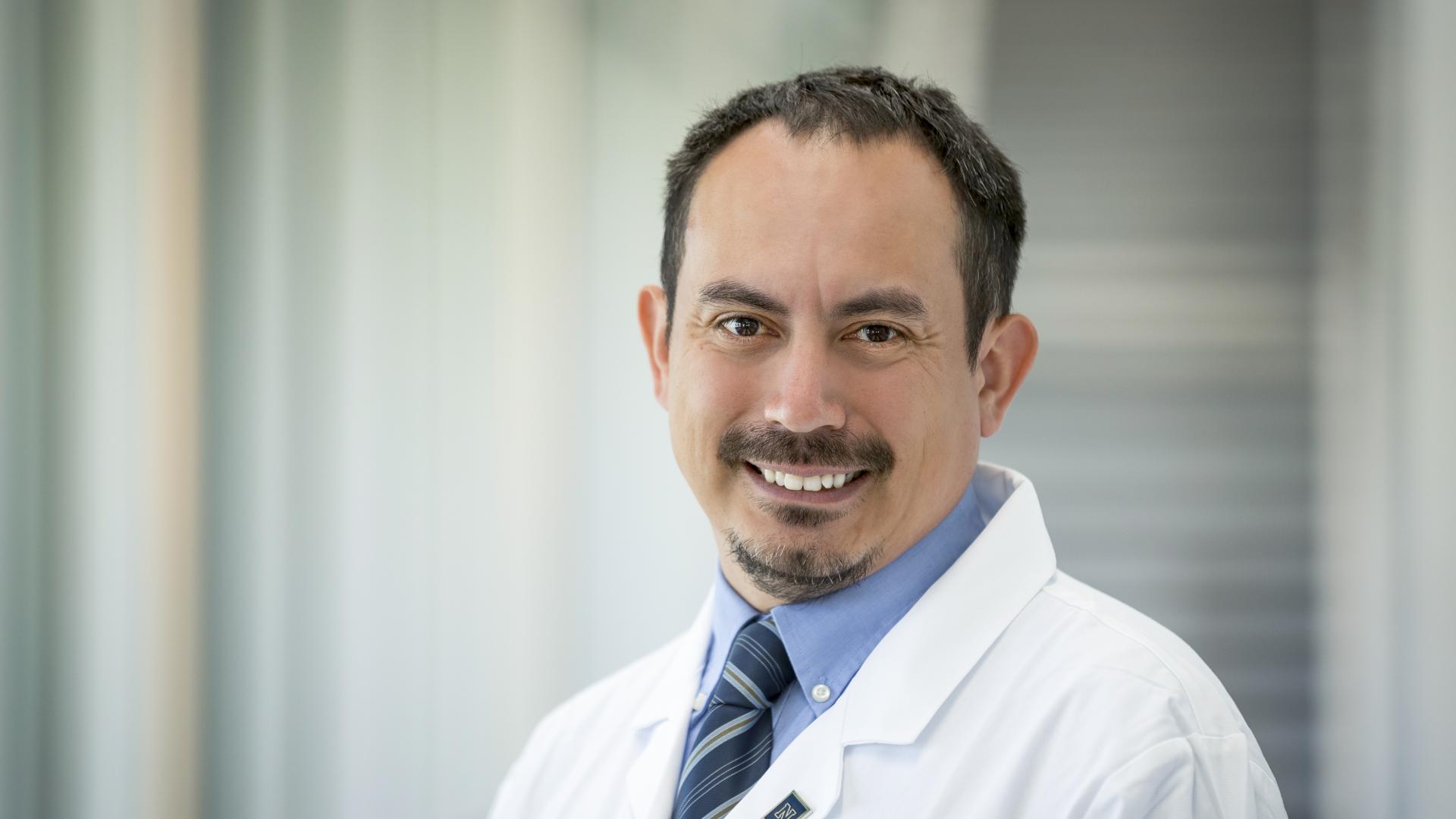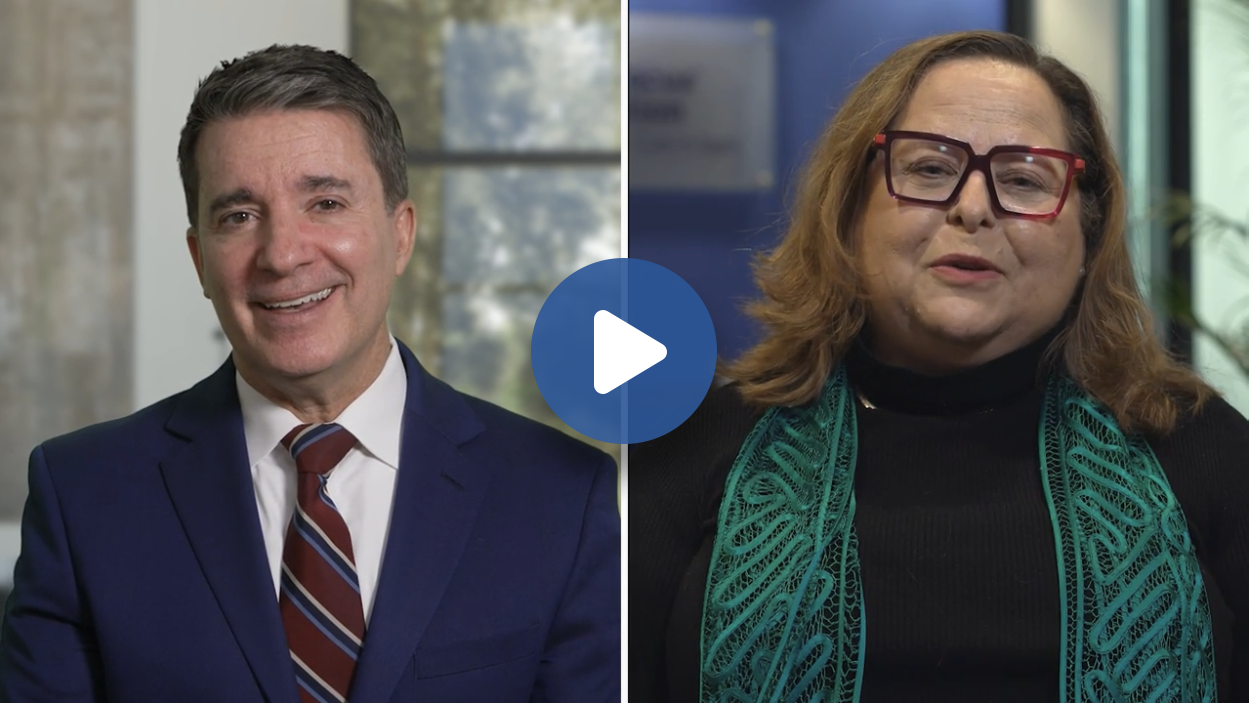Bonnielin Swenor Shares Her Experience with Vision Loss and Becoming an Advocate for People with Low Vision
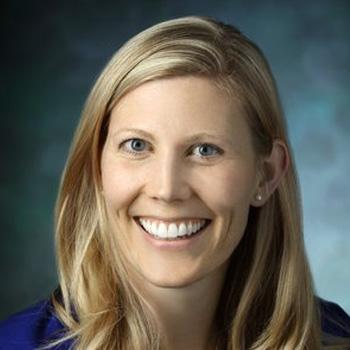
Sixteen years ago, Bonnielin Swenor, PhD, MPH, was applying to graduate programs when she started losing her vision. “My vision loss occurred pretty quickly,” she told listeners to a recent BrightFocus Chat, Living Well with Vision Loss. “I had a pretty rapid decline in vision, and it really changed a lot of – well, everything, truly – about my life.” At the time, she had dreams of a cancer- and nutrition-related research career.
Swenor experienced multiple broken blood vessels in her retinas over about a year and a half. At first, they affected just one of her eyes but eventually affected both. She took disability leave from her job at a science consulting firm and stopped driving. “I was just trying to make sense of what was going on and trying to figure out what the path forward was.” But, she said, the experience completely reframed her professional life.
Today, Swenor is director of the Johns Hopkins Disability Health Research Center and an associate professor of ophthalmology at the Wilmer Eye Institute. She is also an associate professor of epidemiology at the Johns Hopkins Bloomberg School of Public Health, as well as a core faculty member at the Johns Hopkins Center on Aging and Health.
At first, Swenor avoided telling peers and colleagues about her vision loss. She didn’t want to be judged, and she worried people wouldn’t want to work with her.
“I didn’t ask for accommodations in my graduate school training in the beginning because I didn’t know how to advocate,” she said. But she took things one step at a time, slowly introducing a heavier course load as she went along, and ultimately found she was progressing successfully.
One of the harder parts of her journey, she said, was not knowing anyone else experiencing vision loss while pursuing a scientific career. But eventually she connected with people in the vision loss community, and that buoyed her. Through her research, she has also noticed how connection within the community can impact people’s lives, even if, as in her own example, vision loss is not necessarily the way someone chooses to define herself.
“A couple of years ago, someone asked me if I was a patient first or a researcher first,” Swenor said. “I think about that a lot.” While the answer may be mixed, it’s clear that her personal perspective drives her work, whether she’s asking research questions or interpreting data.
At first her research career was focused entirely on vision loss and the impact it has on people’s lives, and it has since expanded. “The majority of people with vision loss are older adults, and I appreciated the approach of geriatric research and that it thought about the whole person,” she said. “The idea of equity followed closely behind.”
Swenor told listeners that her goal, in a nutshell, is to change the paradigm around vision loss from merely “living” with it, to thriving., To do that, she is focused on improving societal views and expectations around disability. Common misconceptions can profoundly impact the well-being of people with vision loss. Swenor’s work pushes back on those fallacies and concretely helps people with vision loss find wellness as they age. She uses scientific evidence to help people with low vision maximize their life experiences, using all the vision and skills and determination that they have.
Taking all that a step further, Swenor also wants to advance scientific understanding of vision loss’s impact on the aging brain. Things like social interaction, physical activity, cognitive stimulation, and having hobbies are crucial for healthy aging in the brain. People with vision loss have obstacles to navigating these components of well-being, so Swenor’s research aims to understand how vision loss changes people’s behavior and mental health. Her work identifies barriers that could potentially put someone on a faster trajectory of cognitive decline.
“I worry sometimes that I’m projecting this idea that you’re sort of doomed to having cognitive decline if you have vision loss,” Swenor said, “but that’s not the point.” She believes people can and should be able to age well with vision loss, while also acknowledging that doing so represents a greater challenge for people with vision loss because most of the strategies and interventions established for healthy aging have not been designed for or taken into account the needs of people with low-vision.
Swenor also suspects that stigma is partly to blame for high rates of mental health issues amongst people with vision loss, and a correlating loss of self-efficacy. “That’s deeper and different than depression and anxiety,” she explains. “It’s in part a reflection, again, of the stigma and stereotype of vision loss that we’re internalizing.
Social isolation and loneliness also play a role, she said. “I know the research, I know the data, but I still feel myself withdraw socially,” said Swenor. “It’s hard to recognize people’s faces. It’s hard in a group setting to know when someone is looking at you to talk to you, and these are real challenges that oftentimes result in you just interacting less … there is a cost to that.”
Swenor said it’s a shared responsibility to overcome these hurdles. There are strategies individuals with vision loss can use, but it is also vital that society does a better job of acknowledging and including people with vision loss in goals around wellness and aging.
“I’m not going to pretend that I have it all figured out – not sure I ever will,” she said. “When I first started losing my vision, it felt like a life sentence. But that was me sort of buying into the social stereotype. I had to let go of my own internalization of what people with vision loss can and can’t do.”
Her personal challenges continue as Swenor loses more of her vision each year and has to continuously adjust for that in her day-to-day life. “I have extreme visual fatigue. I get migraines. I have [only] so much good vision that I can use to power through and make sense of the world in any given day, and I tend to use most of that for my job,” she said.
As a result, her key strategy has been to “to build the majority of my life around not using my vision to do tasks that I don’t need to use it for. If anyone would come to my home, it is meticulously organized, and my kids and my husband know everything has to go back where it goes so I can find it.”
In other words, “the milk always goes where the milks goes. My clothes are in specific places in my closet without variation. That’s just something that’s always helped me get through my day better with less exhaustion.
As for new technologies, “the two apps that have helped me the most in my daily life are Uber and Amazon,” she said. “I know they’re not low-vision specific, but they changed my life. I don’t drive anymore. I don’t do well in stores. I can’t find items on a shelf. So, Uber has expanded where I can live, where I can go, and when I can get there. And with Amazon, I can order my order my groceries; I can order anything. And I never need to be in the store and just struggle to find things. Those have honestly had the biggest impact on my life, more than any other technology.
Also in the Chat, Dr. Swenor shared her views on whether to inform prospective and/or current employers of vision loss, and to claim disability status. She said there is no easy answer or one-size-fits-all solution.
“What I advise to people is that you have to check in with yourself on where your comfort level is,” Swenor said. On one hand, “there’s the law—the Americans with Disabilities Act (ADA)—which prohibits discrimination in the workplace,” she said, adding that, “I don’t think, for many people, you would want to be at a place that would have an unsavory response [to disclosing vision loss],” she said.
But she also recognizes the pragmatic side to all this, “that there are situations and times and instances where you don’t feel safe or you just need a job because of financial reasons and you don’t want to disclose,” she said. “I don’t think there’s a right or wrong.”
“When I first started losing my vision, I felt like I was not going to be able to be the thing I wanted to be, which was a scientist,” Swenor said. “I thought there was absolutely no way. I thought that ship had sailed, and that was really, really hard.”
What helped change her mind was realizing how “I’d worked so hard to just get to where I was,” she said. “I got to a place where I thought, “You know, I honestly have nothing left to lose; I might as well just try and figure this out.”
“I started by taking one graduate class to test myself, and I didn’t do as terribly as I thought. Then, I took two and I kind of went from there.”
And as she started to figure things out, she grew more confident and outspoken.
“I never imagined in a million years that I would be where I am today, truly. I’m not special; I’m not exceptionally gifted in anything. I work really hard, but I do think that it is my unique perspective that has gotten me here.”
That unique perspective? One of self-worth and self-acceptance, which clearly was the take-away message for the Chat audience.
“When you start to lose your vision, your perspective does change; you do change as a person. There’s no questioning that, but that doesn’t mean you have less value; you probably have more, in lots of cases, and it’s understanding that and harnessing that is important for your self-worth, for your health, for so many parts of life.”
Click here to read the transcript or listen to the entire Chat.
Register for BrightFocus Chats, a series of free monthly telephone discussions featuring experts who talk about vision diseases, such as macular degeneration.
About BrightFocus Foundation
BrightFocus Foundation is a premier global nonprofit funder of research to defeat Alzheimer’s, macular degeneration, and glaucoma. Through its flagship research programs — Alzheimer’s Disease Research, Macular Degeneration Research, and National Glaucoma Research— the Foundation has awarded nearly $300 million in groundbreaking research funding over the past 51 years and shares the latest research findings, expert information, and resources to empower the millions impacted by these devastating diseases. Learn more at brightfocus.org.
Disclaimer: The information provided here is a public service of BrightFocus Foundation and is not intended to constitute medical advice. Please consult your physician for personalized medical, dietary, and/or exercise advice. Any medications or supplements should only be taken under medical supervision. BrightFocus Foundation does not endorse any medical products or therapies.
- Perspectives




